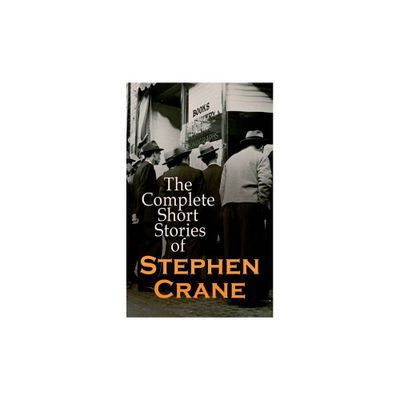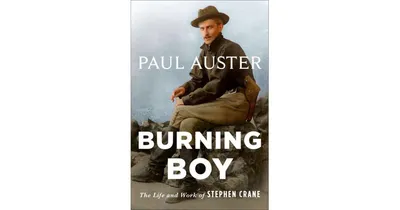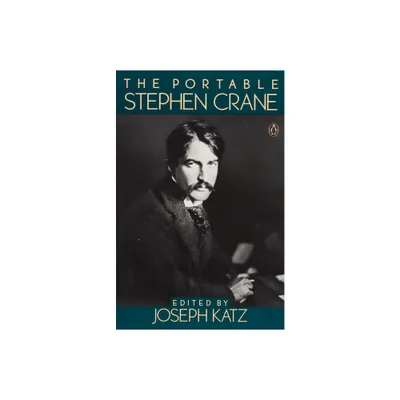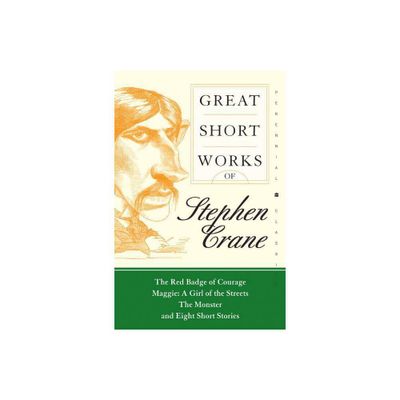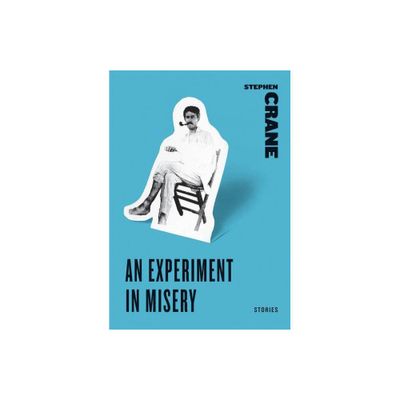Home
The Material Unconscious: American Amusement, Stephen Crane, and the Economics of Play
Loading Inventory...
Barnes and Noble
The Material Unconscious: American Amusement, Stephen Crane, and the Economics of Play
Current price: $52.00


Barnes and Noble
The Material Unconscious: American Amusement, Stephen Crane, and the Economics of Play
Current price: $52.00
Loading Inventory...
Size: OS
*Product Information may vary - to confirm product availability, pricing, and additional information please contact Barnes and Noble
Within the ephemera of the everydayold photographs, circus posters, iron toyslies a challenge to America's dominant cultural memory. What this memory has left behind, Bill Brown recovers in the "material unconscious" of Stephen Crane's work, the textual residues of daily sensations that add up to a new history of the American 1890s. As revealed in Crane's disavowing appropriation of an emerging mass culturefrom football games and freak shows to roller coasters and early cinemathe decade reappears as an underexposed moment in the genealogy of modernism and modernity.
Brown's story begins on the Jersey Shore, in Asbury Park, where Crane became a writer in the shadow of his father, a grimly serious Methodist minister who vilified the popular amusements his son adored. The coastal resorts became the stage for debates about technology, about the body's visibility, about a black service class and the new mass access to leisure. From this snapshot of a recreational scene that would continue to inspire Crane's sensational modernism, Brown takes us to New York's Bowery. There, in the visual culture established by dime museums, minstrel shows, and the Kodak craze, he exhibits Crane dramatically obscuring the typology of race.
Along the way, Brown demonstrates how attitudes toward play transformed the image of war, the idea of childhood and nationhood, and the concept of culture itself. And by developing a new conceptual apparatus (with such notions as "recreational time," "abstract leisure," and the "amusement/knowledge system"), he provides the groundwork for a new politics of pleasure. A crucial theorization of how cultural studies can and should proceed,
The Material Unconscious
insists that in the very conjuncture of canonical literature and mass culture, we can best understand how proliferating and competing economies of play disrupt the so-called "logic" and "work" of culture.
Brown's story begins on the Jersey Shore, in Asbury Park, where Crane became a writer in the shadow of his father, a grimly serious Methodist minister who vilified the popular amusements his son adored. The coastal resorts became the stage for debates about technology, about the body's visibility, about a black service class and the new mass access to leisure. From this snapshot of a recreational scene that would continue to inspire Crane's sensational modernism, Brown takes us to New York's Bowery. There, in the visual culture established by dime museums, minstrel shows, and the Kodak craze, he exhibits Crane dramatically obscuring the typology of race.
Along the way, Brown demonstrates how attitudes toward play transformed the image of war, the idea of childhood and nationhood, and the concept of culture itself. And by developing a new conceptual apparatus (with such notions as "recreational time," "abstract leisure," and the "amusement/knowledge system"), he provides the groundwork for a new politics of pleasure. A crucial theorization of how cultural studies can and should proceed,
The Material Unconscious
insists that in the very conjuncture of canonical literature and mass culture, we can best understand how proliferating and competing economies of play disrupt the so-called "logic" and "work" of culture.




